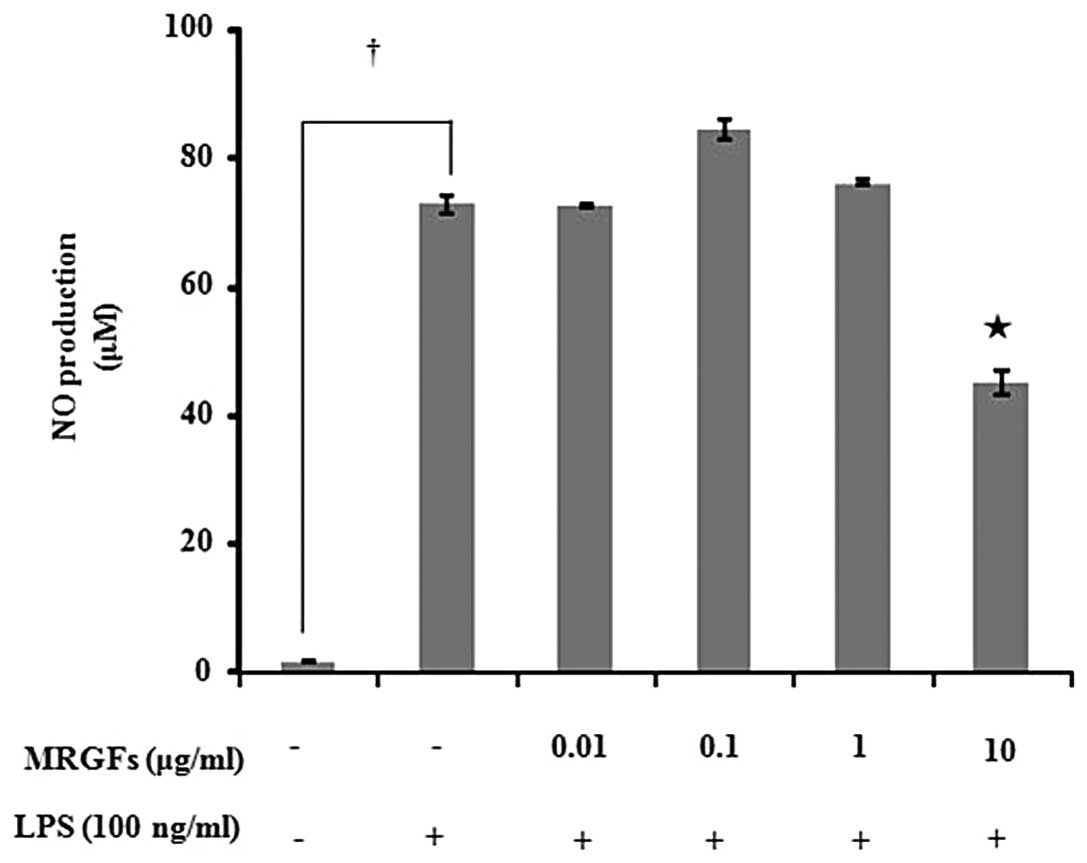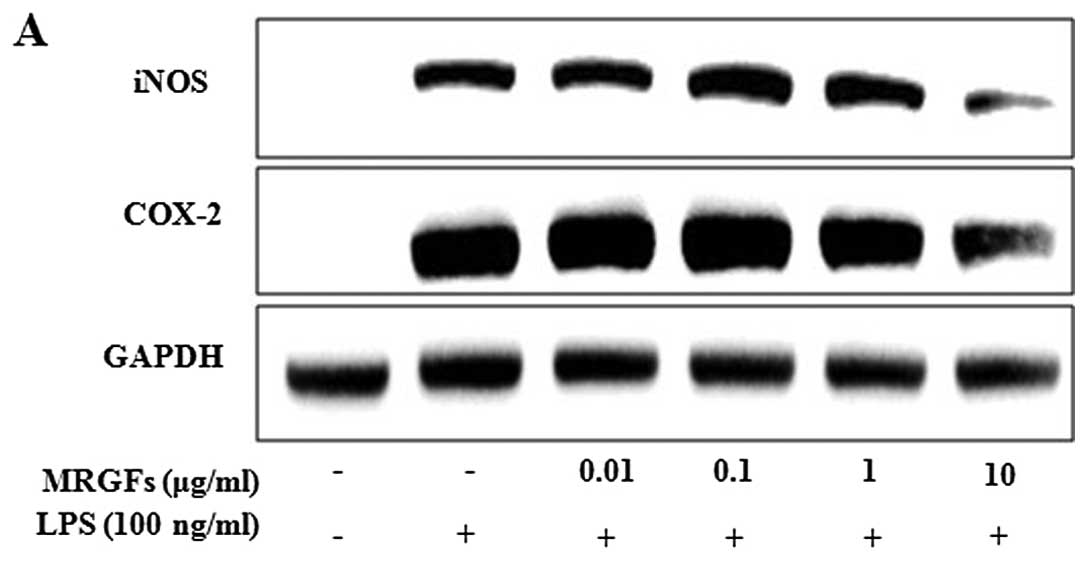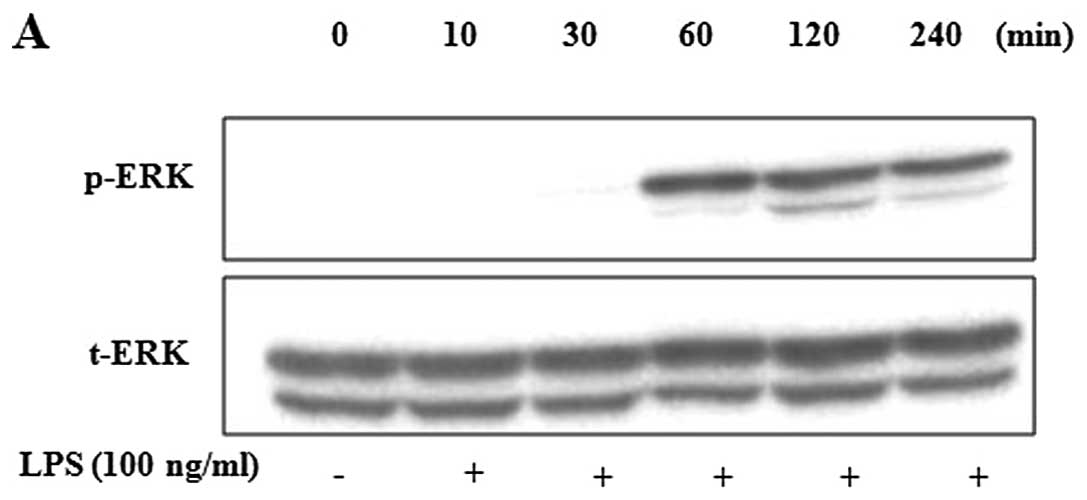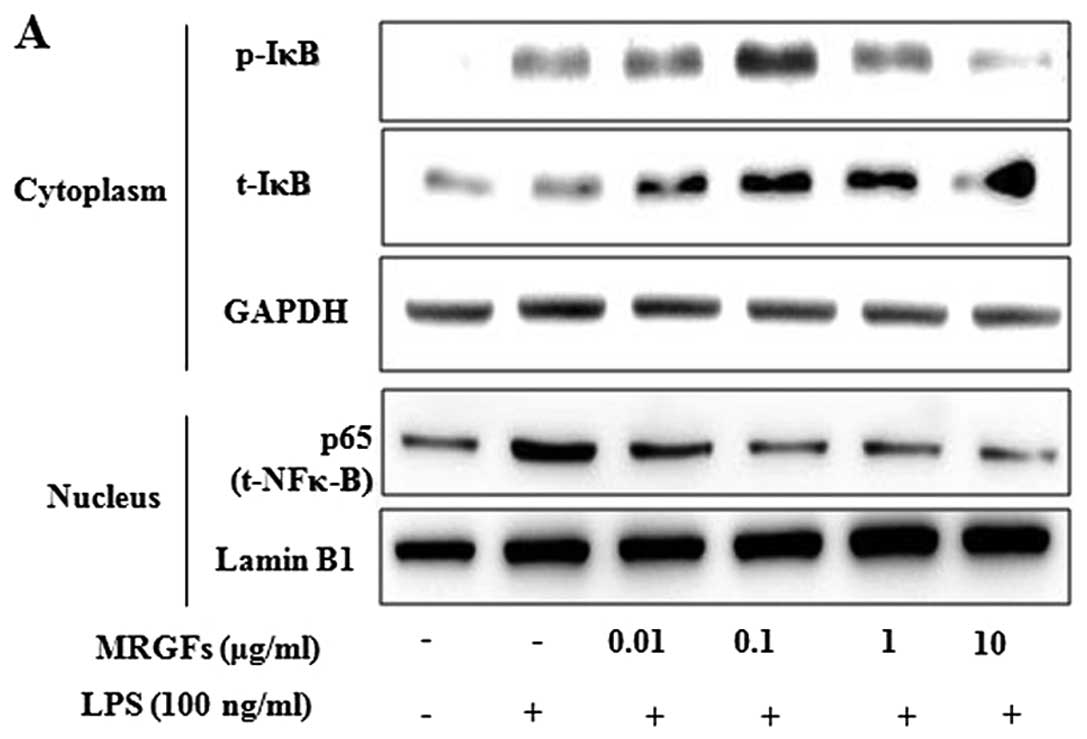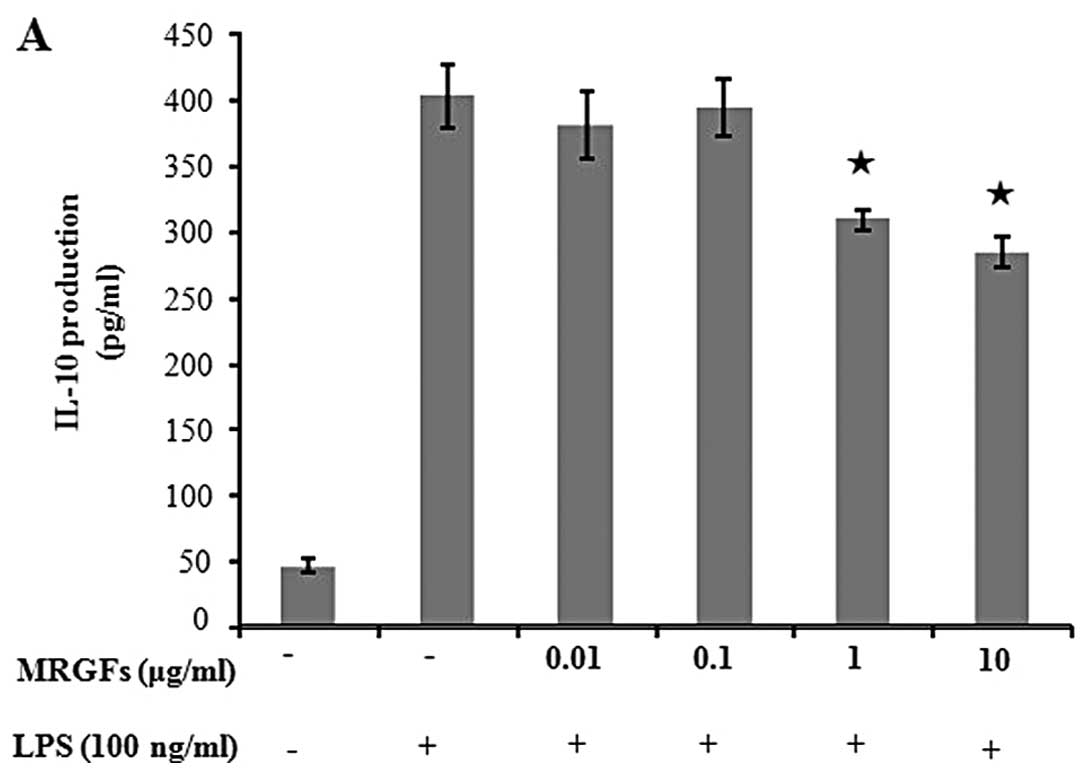|
1
|
Goustin AS, Leof EB, Shipley GD and Moses
HL: Growth factors and cancer. Cancer Res. 46:1015–1029. 1986.
|
|
2
|
Childs CB, Proper JA, Tucker RF and Moses
HL: Serum contains a platelet-derived transforming growth factor.
Proc Natl Acad Sci USA. 79:5312–5316. 1982. View Article : Google Scholar : PubMed/NCBI
|
|
3
|
Taguchi M, Moran SL, Zobitz ME, et al:
Wound-healing properties of transforming growth factor β (TGF-β)
inducible early gene 1 (TIEG1) knockout mice. J Musculoskelet Res.
11:63–69. 2008.
|
|
4
|
Hollwy RW and Kiernan JA: Control of the
initiation of DNA synthesis in 3T3 cells: serum factors. Proc Natl
Acad Sci USA. 71:2908–2911. 1974. View Article : Google Scholar : PubMed/NCBI
|
|
5
|
Martin P: Wound healing - aiming for
perfect skin regeneration. Science. 276:75–81. 1997. View Article : Google Scholar : PubMed/NCBI
|
|
6
|
Matt P, Schoenhoff F, Habashi J, et al:
Circulating transforming growth factor-beta in Marfan syndrome.
Circulation. 120:526–532. 2009. View Article : Google Scholar : PubMed/NCBI
|
|
7
|
Kim HS: Assignment1 of the human basic
fibroblast growth factor gene FGF2 to chromosome 4 band q26 by
radiation hybrid mapping. Cytogenet Cell Genet. 83:731998.
View Article : Google Scholar : PubMed/NCBI
|
|
8
|
Barrientos S, Stojadinovic O, Golinko MS,
Brem H and Tomic-Canic M: Growth factors and cytokines in wound
healing. Wound Repair Regen. 16:585–601. 2008. View Article : Google Scholar : PubMed/NCBI
|
|
9
|
Rotolo S, Ceccarelli S, Romano F, Frati L,
Marchese C and Angeloni A: Silencing of keratinocyte growth factor
receptor restores 5-fluorouracil and tamoxifen efficacy on
responsive cancer cells. PLoS One. 3:e25282008. View Article : Google Scholar : PubMed/NCBI
|
|
10
|
Schultz G, Rotatori DS and Clark W: EGF
and TGF-alpha in wound healing and repair. J Cell Biochem.
45:346–352. 1991. View Article : Google Scholar : PubMed/NCBI
|
|
11
|
Lee JA, Song HY, Ju SM, et al:
Differential regulation of inducible nitric oxide synthase and
cyclooxygenase-2 expression by superoxide dismutase in
lipopolysaccharide stimulated RAW 264.7 cells. Exp Mol Med.
41:629–637. 2009. View Article : Google Scholar : PubMed/NCBI
|
|
12
|
Andres C, Hasenauer J, Ahn HS, et al:
Wound-healing growth factor, basic FGF, induces Erk1/2-dependent
mechanical hyperalgesia. Pain. 154:2216–2226. 2013. View Article : Google Scholar : PubMed/NCBI
|
|
13
|
Weston CR, Lambright DG and Davis RJ:
Signal transduction. MAP kinase signaling specificity. Science.
296:2345–2347. 2002. View Article : Google Scholar : PubMed/NCBI
|
|
14
|
Su B and Karin M: Mitogen-activated
protein kinase cascades and regulation of gene expression. Curr
Opin Immunol. 8:402–411. 1996. View Article : Google Scholar : PubMed/NCBI
|
|
15
|
Herlaar E and Brown Z: p38 MAPK signalling
cascades in inflammatory disease. Mol Med Today. 5:439–447. 1999.
View Article : Google Scholar : PubMed/NCBI
|
|
16
|
Chan-Hui PY and Weaver R: Human
mitogen-activated protein kinase kinase kinase mediates the
stress-induced activation of mitogen-activated protein kinase
cascades. Biochem J. 336:599–609. 1998.PubMed/NCBI
|
|
17
|
Carter AB, Knudtson KL, Monick MM and
Hunninghake GW: The p38 mitogen-activated protein kinase is
required for NF-kappaB-dependent gene expression. The role of
TATA-binding protein (TBP). J Biol Chem. 274:30858–30863. 1999.
View Article : Google Scholar : PubMed/NCBI
|
|
18
|
Pearson G, Robinson F, Beers Gibson T, et
al: Mitogen-activated protein (MAP) kinase pathways: regulation and
physiological functions. Endocr Rev. 22:153–183. 2001.PubMed/NCBI
|
|
19
|
Francisco V, Costa G, Figueirinha A, et
al: Anti-inflammatory activity of Cymbopogon citratus leaves
infusion via proteasome and nuclear factor-κB pathway inhibition:
contribution of chlorogenic acid. J Ethnopharmacol. 148:126–134.
2013.
|
|
20
|
Kim HG, Shrestha B, Lim SY, et al:
Cordycepin inhibits lipopolysaccharide-induced inflammation by the
suppression of NF-kappaB through Akt and p38 inhibition in RAW
264.7 macrophage cells. Eur J Pharmacol. 545:192–199. 2006.
View Article : Google Scholar : PubMed/NCBI
|
|
21
|
O’Connor JC, McCusker RH, Strle K, Johnson
RW, Dantzer R and Kelley KW: Regulation of IGF-I function by
proinflammatory cytokines: at the interface of immunology and
endocrinology. Cell Immunol. 252:91–110. 2008.
|
|
22
|
Twentyman PR and Luscombe M: A study of
some variables in a tetrazolium dye (MTT) based assay for cell
growth and chemosensitivity. Br J Cancer. 56:279–285. 1987.
View Article : Google Scholar : PubMed/NCBI
|
|
23
|
Reddy DB and Reddanna P: Chebulagic acid
(CA) attenuates LPS-induced inflammation by suppressing NF-kappaB
and MAPK activation in RAW 264.7 macrophages. Biochem Biophys Res
Commun. 381:112–117. 2009. View Article : Google Scholar : PubMed/NCBI
|
|
24
|
Bradford MM: A rapid and sensitive method
for the quantitation of microgram quantities of protein utilizing
the principle of protein-dye binding. Anal Biochem. 72:248–254.
1976. View Article : Google Scholar : PubMed/NCBI
|
|
25
|
Jeong Y and Mangelsdorf DJ: Nuclear
receptor regulation of stemness and stem cell differentiation. Exp
Mol Med. 41:525–537. 2009. View Article : Google Scholar : PubMed/NCBI
|
|
26
|
Tilg H, Wilmer A, Vogel W, et al: Serum
levels of cytokines in chronic liver diseases. Gastroenterology.
103:264–274. 1992.PubMed/NCBI
|
|
27
|
ter Steege JC, van de Ven MW, Forget PP,
Brouckaert P and Buurman WA: The role of endogenous IFN-gamma,
TNF-alpha and IL-10 in LPS-induced nitric oxide release in a mouse
model. Cytokine. 10:115–123. 1998.
|
|
28
|
Wu KK: Inducible cyclooxygenase and nitric
oxide synthase. Adv Pharmacol. 33:179–207. 1995. View Article : Google Scholar : PubMed/NCBI
|
|
29
|
Albini A and Sporn MB: The tumour
microenvironment as a target for chemoprevention. Nat Rev Cancer.
7:139–147. 2007. View
Article : Google Scholar : PubMed/NCBI
|
|
30
|
Barnes PJ and Karin M: Nuclear
factor-kappaB: a pivotal transcription factor in chronic
inflammatory diseases. N Engl J Med. 336:1066–1071. 1997.
View Article : Google Scholar : PubMed/NCBI
|
|
31
|
Kim SH, Park HS, Lee MS, et al: Vitisin A
inhibits adipocyte differentiation through cell cycle arrest in
3T3-L1 cells. Biochem Biophys Res Commun. 372:108–113. 2008.
View Article : Google Scholar : PubMed/NCBI
|
|
32
|
Kao SJ, Lei HC, Kuo CT, et al:
Lipoteichoic acid induces nuclear factor-kappaB activation and
nitric oxide synthase expression via phosphatidylinositol 3-kinase,
Akt, and p38 MAPK in RAW 264.7 macrophages. Immunology.
115:366–374. 2005. View Article : Google Scholar : PubMed/NCBI
|
|
33
|
Heinrich PC, Castell JV and Andus T:
Interleukin-6 and the acute phase response. Biochem J. 265:621–636.
1990.PubMed/NCBI
|
|
34
|
Flamand L, Gosselin J, D’Addario M, et al:
Human herpesvirus 6 induces interleukin-1 beta and tumor necrosis
factor alpha, but not interleukin-6, in peripheral blood
mononuclear cell cultures. J Virol. 65:5105–5110. 1991.PubMed/NCBI
|
|
35
|
Yuk SS, Lim EM, Lee JY, et al:
Antiinflammatory effects of Epimedium brevicornum water extract on
lipopolysaccharide-activated RAW264.7 macrophages. Phytother Res.
24:1781–1787. 2010. View
Article : Google Scholar : PubMed/NCBI
|
|
36
|
Mocellin S, Marincola F, Rossi CR, Nitti D
and Lise M: The multifaceted relationship between IL-10 and
adaptive immunity: putting together the pieces of a puzzle.
Cytokine Growth Factor Rev. 15:61–76. 2004. View Article : Google Scholar : PubMed/NCBI
|
|
37
|
Jana M, Dasgupta S, Saha RN, Liu X and
Pahan K: Induction of tumor necrosis factor-alpha (TNF-alpha) by
interleukin-12 p40 monomer and homodimer in microglia and
macrophages. J Neurochem. 86:519–528. 2003. View Article : Google Scholar : PubMed/NCBI
|















